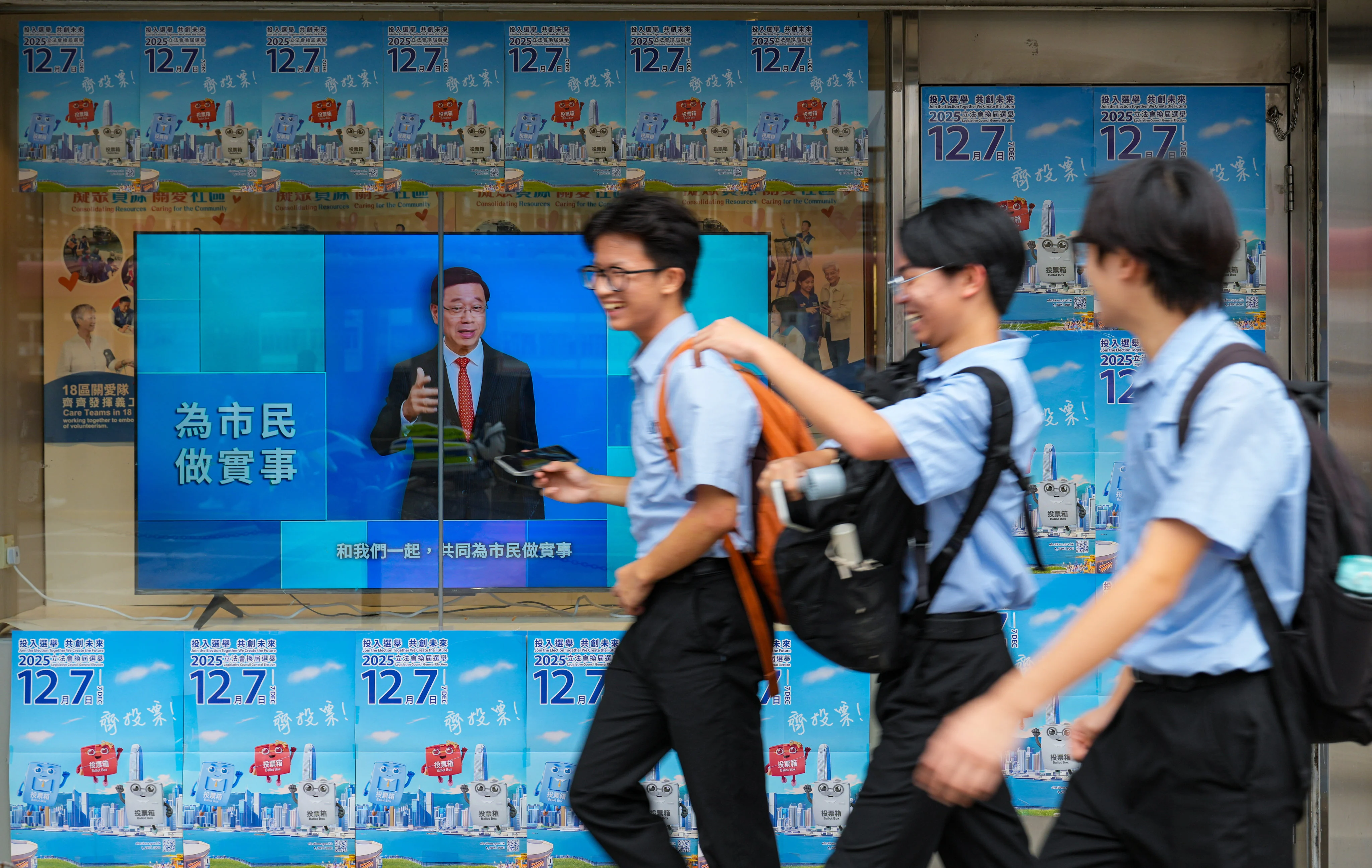Copyright scmp

A total of 161 aspirants with a younger profile are competing for 90 seats in Hong Kong’s second “patriots-only” Legislative Council election, marking a nearly 5 per cent increase over the last poll and leaving no slot uncontested. As the two-week nomination period of the Legislative Council election closed on Thursday, it was also confirmed that up to 35 incumbents, including Paul Tse Wai-chun, who has served in the legislature since 2008, would not run again for office – a record high proportion since the city’s return to Chinese sovereignty in 1997. The number of aspirants running for the race was seven more than the 154 recorded in the 2021 election, up by 4.5 per cent. The average age of the latest batch of hopefuls is 49. All incumbent lawmakers above the age of 70 opted not to run in the December 7 election, paving the way for new contenders to join the race. The city’s directly elected geographical constituencies played a big part in the increase in aspirants, with up to 51 contenders running for the 20 seats, a rise from 35 in 2021 and a jump of 45.7 per cent. The fiercest competition is taking place in Kowloon Central as six hopefuls compete for two seats. Five aspirants are running in each of the remaining nine geographical constituencies. The election race in the New Territories South East and the New Territories North is comprised entirely of newcomers, with no incumbent lawmakers planning to defend their seats. But a different story is unfolding in Hong Kong Island West. Three presiding lawmakers are among the five candidates vying for the area’s two seats, with the odds potentially implying that at least one will not get re-elected. But both functional constituencies and the Election Committee constituency are looking at a decline in the number of aspirants. A total of 60 aspirants signed up to run for the 30 seats in functional constituencies, down from 68 in the previous election – a drop of 13 per cent. Five candidates are competing for three seats in the labour sector, while three hopefuls are vying for a seat representing the social welfare sector. Each of the remaining functional constituencies saw two aspirants running for one seat. The Election Committee constituency, meanwhile, had one fewer candidate this year compared with four years ago, as 50 people competed for 40 seats. The middle-of-the-road Third Side party, which fielded the sole centrist lawmaker, Tik Chi-yuen, in the last Legco term, announced on Thursday that it was unable to field any candidates. Party chairman Tik said they had failed to secure enough nominations for any candidates, but vowed to continue speaking out to the government. He did not reveal the number of candidates the party had proposed or how many nominations they were short of. “We made an effort, but it did not work out; we took it in our stride,” he said. Under the patriots-only overhaul, each candidate must secure a minimum of 10 nominations – at least two from across five sectors of the 1,500-strong Election Committee packed with pro-establishment figures – before they can compete. Jeffrey Chan Chun-hung and Allan Wong Wing-ho, both from local think tank the PoD Research Institute, which was founded by Executive Council member Ronny Tong Ka-wah, emerged as the only candidates with centrist backgrounds in this year’s poll. About 10 hopefuls with a centrist approach or a former opposition background ran in the 2021 poll, as major opposition parties did not take part in that race. Three lawmakers, who had not officially indicated their next move previously, did not sign up for the race, implying they would step down from the legislature. The trio were Paul Tse, Wendy Hong Wen and Kenneth Leung Yuk-wai. While Hong said she would “turn a new page” as Legco was about to enter a new phase, Tse said he preferred not to comment when approached by the Post. Jesse Shang Hailong, Tan Yueheng and Chan Yuet-ming, meanwhile, declared they would not seek another term just before the nomination period closed. Their departure brought the total number of outgoing lawmakers to 35, nearly 40 per cent of the 89 incumbents, a record-high proportion. Outgoing Legco President Andrew Leung Kwan-yuen said he felt “delighted” that the coming election remained highly competitive, with all 90 seats being contested. He urged society not to neglect the election just because the Legco had returned to rationality, with fewer internal conflicts and dramatic scenes. Leung also highlighted that the future lawmakers had heavy responsibilities to speak on behalf of the people, promote good governance, help all sectors of Hong Kong to seize opportunities and ensure further integration into national development under the country’s 15th five-year plan. He expressed confidence that the turnout would “definitely be better than” past elections, thanks to the promotional efforts by the government and the business sector. New People’s Party chairwoman Regina Ip Lau Suk-yee, who earlier announced she was wrapping up her 17-year stint in the legislature, also called the coming competition for the geographical constituencies “extremely intensive and acute”. Asked about the high proportion of lawmakers stepping down, Ip stressed the importance of experience and continuity. “I think it’s important to have experienced legislators in Legco because, after all, the bread and butter of Legco is lawmaking, and scrutinising government bills is no easy task. It requires quite a bit of experience and expertise,” she said. “I think [the new term] will have to climb a rather steep learning curve.” Beijing’s Hong Kong and Macau Affairs Office on Thursday evening posted a commentary from pro-Beijing newspaper Wen Wei Po that lauded a special task force set up by the Civil Service Bureau for promoting the poll and the local administration for planning and carrying out the election in a holistic and systematic manner. In the run-up to the election, the business sector has answered the government’s call to boost turnout by offering incentives such as a half-day of paid leave and transport subsidies to encourage employees to cast their ballots. Chief Executive John Lee Ka-chiu earlier urged public institutions and businesses to encourage employees to take part in the poll on December 7. The 2021 Legco election, the first after Beijing overhauled the city’s electoral system, saw a record low turnout of 30.2 per cent. Additional reporting by Matthew Cheng



